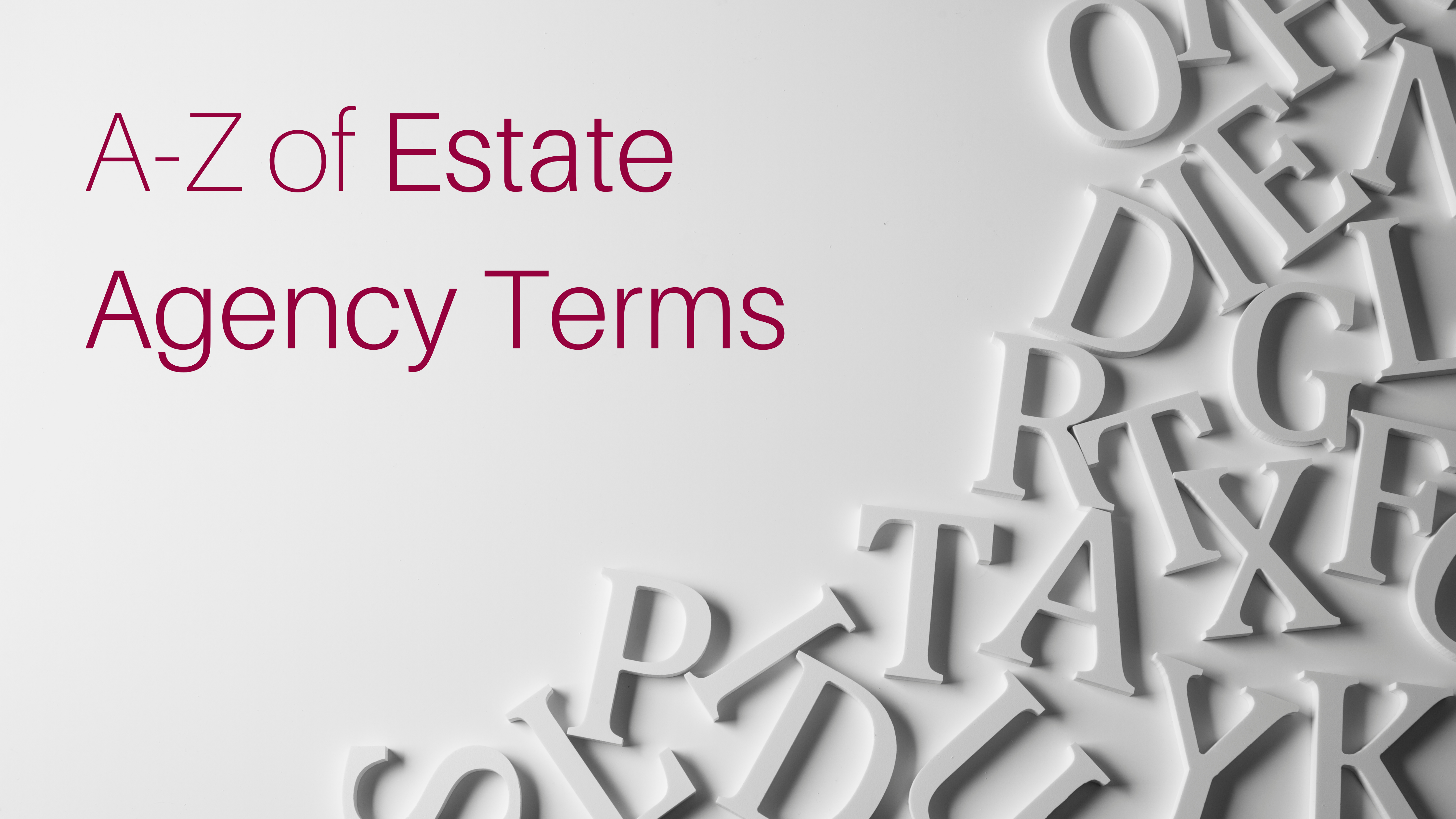Hurfords news
July 6, 2022
The A-Z of Estate Agency Terms
AGREEMENT IN PRINCIPLE
An estimate of how much money you can borrow from a mortgage lender; based on your income and credit history. Also known as a decision in principle, mortgage in principle, approval in principle or mortgage promise.
AUCTION
Similar to EBay, we sell homes via an auction system through iamsold, whereby the sale of a property goes to the highest bidder.
ANNUAL PERCENTAGE RATE OF CHARGE (APRC)
The total rate of interest you’ll pay for a mortgages entire duration. APRC considers all the different rates your mortgage will be subject to and serves as an easy way to compare mortgage deals—lower rates usually mean a better deal.
BASE RATE
The interest rate set by the Bank of England for lending to other banks. This is used as the benchmark for interest rates generally.
BRIDGING LOAN
A temporary short-term loan which allows a buyer to purchase a property before selling their current property.
BUILDING SURVEY
A report on the physical condition of a property; carried out by a chartered surveyor.
BUILDINGS INSURANCE
An insurance policy that pays the cost of repair or rebuilding in the event that the property is damaged or destroyed.
BUY-TO-LET MORTGAGE
Mortgages for people who buy property with the intention of renting it out.
CHAIN
A chain is formed when several property sales and purchases are dependent on one another. It is the Sales Progressors responsibility to keep the chain moving along.
COMMON HOLD
A system of ownership usually in place in buildings of multiple occupancies, such as a block of flats. Unlike with leasehold, an individual owns the freehold of the property and all property owners collectively help manage the maintenance of the building.
COMPLETION
When the transaction is complete and ownership of the property passes from seller to buyer. The keys are usually handed over at this time too.
CONVEYANCING
The legal process surrounding the transfer of ownership of a property from buyer to seller.
COVENANT
A promise that has been written into a deed which may affect or limit the use of the property or land.
CREDIT SCORE
A record of an individual’s past borrowing behaviour; including information about late payments and bankruptcy. The higher the score the better.
DEEDS
Legal documents to prove ownership of a property.
DEPOSIT
A payment used to secure the purchase of a property (typically 10% of the property value). The remaining amount is paid on completion or paid off over time in the form of a mortgage.
DISBURSEMENTS
Additional items on top of the legal fees in conveyancing such as Stamp Duty Land Tax, land registry fees, search fees and any other expenses. The conveyancer should be able to estimate the likely disbursements before the transaction starts.
EARLY REPAYMENT CHARGE (ERC)
A charge which is incurred when you overpay on a mortgage or transfer to a different mortgage product during the agreed contract (known as the early repayment charge period). Most mortgage lenders allow overpayment up to a certain amount without incurring a charge.
ENERGY PERFORMANCE CERTIFICATE (EPC)
The measurement of energy efficiency and carbon emissions of a property using a scale of A (best) –G (worst). It is a legal requirement to have a valid EPC when selling a property. These are easily acquired.
EQUITY
How much an individual owns of a property. The difference between the value of the home and the mortgage owed. Equity generally increases with time.
EXCHANGE OF CONTRACTS
Signed contracts are physically exchanged by the buyer and seller, legally binding the purchase and sale of a property. No terms can be changed after contracts are exchanged.
FIXED RATE
This is when the mortgage product interest rate remains the same for a prearranged amount of time.
FREEHOLD
The property owner also owns the land it sits on.
INTEREST RATE
A percentage charge added to the total amount paid back on a loan. For example, a mortgage with a 3% interest rate would mean the property owner pays back the full amount of the loan plus an additional 3% of its value.
LAND REGISTRY
A Government database holding records of who owns what property and land, in England and Wales.
LEASEHOLD
Individual owns the property but does not own the land that the property sits on. There is a time limit placed on leases which will need to be renewed with the landowner, always check how many years remain on a lease.
LISTED BUILDING
A listed building may carry certain responsibilities and restrictions related to the use, repair, refurbishment and maintenance of the property. This information should be provided.
LOAN TO VALUE
The ratio of how much the mortgage loan will cover the price of the property. For example, a mortgage that offers a 70% loan-to-value mortgage will cover 70% of the property’s overall value; meaning a 30% deposit is required.
MORTGAGE
A loan taken out to purchase a property, repayable over an agreed amount of time. The property itself is considered collateral, meaning if you do not keep up with your repayments, the property may be repossessed and sold to recover the remaining money owed.
OFFER
The amount of money that a potential purchaser/buyer proposes to pay for a property.
OPEN HOUSE
A multiple viewing day with a time slot for potential buyers to view a property at the same time.
THE PROPERTY OMBUDSMAN
The Property Ombudsman offers a free and independent service for resolving disputes between sales and letting agents, and buyers/sellers of residential properties in the UK.
REPOSSESSION
When the mortgage lender takes ownership of a property because the mortgage has not been paid.
SOLE AGENT
When a seller chooses only one estate agent to sell their property.
STAMP DUTY
A one off payment to the government by the buyer/purchaser. The current threshold for residential properties is £125,000, and £150,000 for non-residential properties. The rate paid will depend on the overall value of the property.
SUBJECT TO CONTRACT
When an offer is accepted, but contracts have not been exchanged. Nothing is legally binding from either the seller or the buyers side and offers can still be retracted/rejected.
TENURE
If the ownership of a property is leasehold or freehold.
TITLE
Documents outlining the legal right of owning a property or land.
TRANSFER DOCUMENT
The final legally binding document that transfers the property and all its rights from the seller to the buyer.
UNDER OFFER
When a seller accepts an offer the property then becomes ‘under offer’, but contracts have not yet been exchanged meaning it is not legally binding.
VALUATION
An experienced estate agent will visit a property to give their opinion of the market value of a property, to determine a price to offer it for. Also known as a market appraisal.
VENDOR
A term for the seller of a property.





